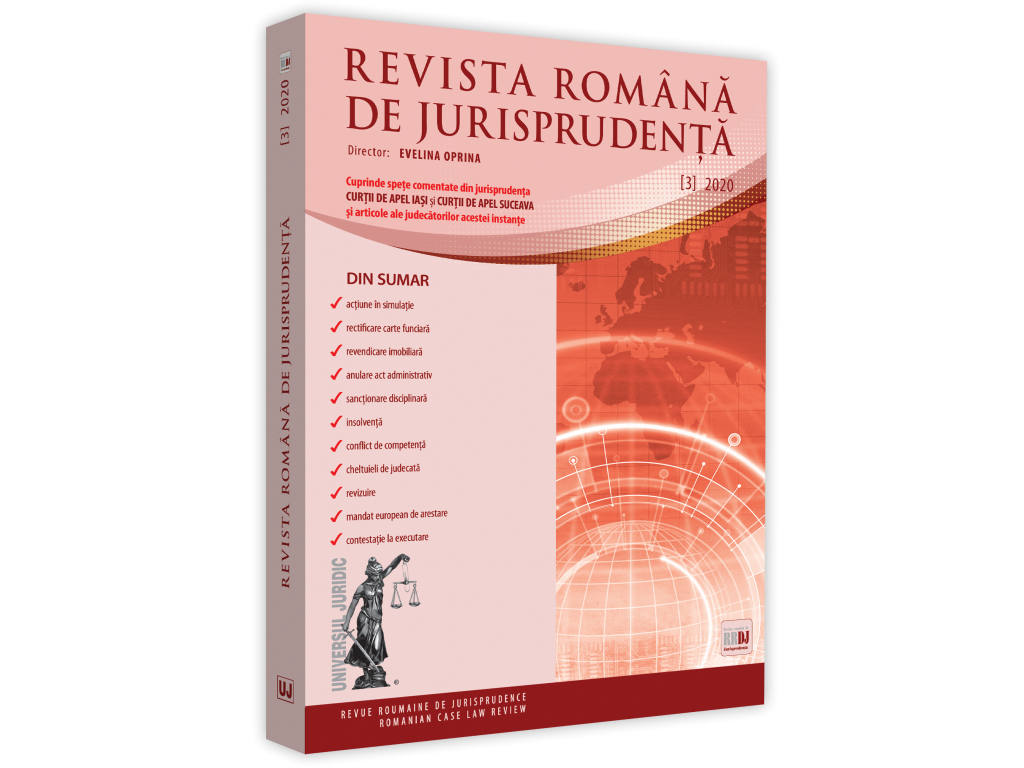37. Decizie de sancționare disciplinară; caracterul restrictiv al dispozițiilor înscrise în art. 251 și art. 252 alin. (2) lit. b) C. mun. – efecte juridice
37. The decision of disciplinary sanction; the restrictive nature of the provisions of Art. 251 and Art. 252 para. (2) letter b) of the Labor Code – legal effects
Author(s): Elena Crizantema PanainteSubject(s): Law, Constitution, Jurisprudence, Civil Law
Published by: Universul Juridic
Keywords: disciplinary sanction; Labor Code; disciplinary liability;
Summary/Abstract: In a substantial sense, according to the provisions of Art. 252 para. (2) of the Labor Code, the decision of disciplinary sanction is a formal act, and its content is imposed by imperative norms, subject to nullity. However, only total avoidance of the requirements set forth in Art. 252 of the Labor Code triggers the annulment of the sanctioning decision and the other irregularities are not amenable to invalidate the sanctioning document and is effective only to verify its grounds. To this end, the employer will be limited by its own decision issued which is subject to jurisdictional review and governing the conditions for disciplinary liability as a special form of liability in the labor relations. By way of exception, Art. 251 of the Labor Code must be construed restrictively that the lawfulness of any legal act is subject to conditions of substance and form on its execution date. Consequently, the lawfulness of creation of the disciplinary investigation commission must be referred to the legal status existing on the board designation date. The object of the dispute is determined based on the act of notification of the court, respectively the appeal against the sanctioning decision. In this framework, neither appellee or the court may hold factual or legal issues over the internal decision, whose legality and grounds are examined solely by reference to the intrinsic content and the applicable legal rules upon issuance. Hierarchical subordination of the employees may not be equal to breaking their individual will and may not authorize autocratic positions of the employer. The difficulties concerning the internal management may be solved by applying the employment relations regulations and may not be extended to the disciplinary liability absent the employee’s contribution to find easier solutions, whereas the employee’s consent may not be imposed but must be freely expressed. Consequently, the material item of the action is not illegal because it does not breach any legal norm or the internal regulation, the individual labor agreement or the collective labor agreement applicable, the legal orders and instructions of the hierarchical managers, pursuant to Art. 247 of the Labor Code.
Journal: Revista Română de Jurisprudenţă
- Issue Year: 2020
- Issue No: 03
- Page Range: 242-250
- Page Count: 9
- Language: Romanian
- Content File-PDF

